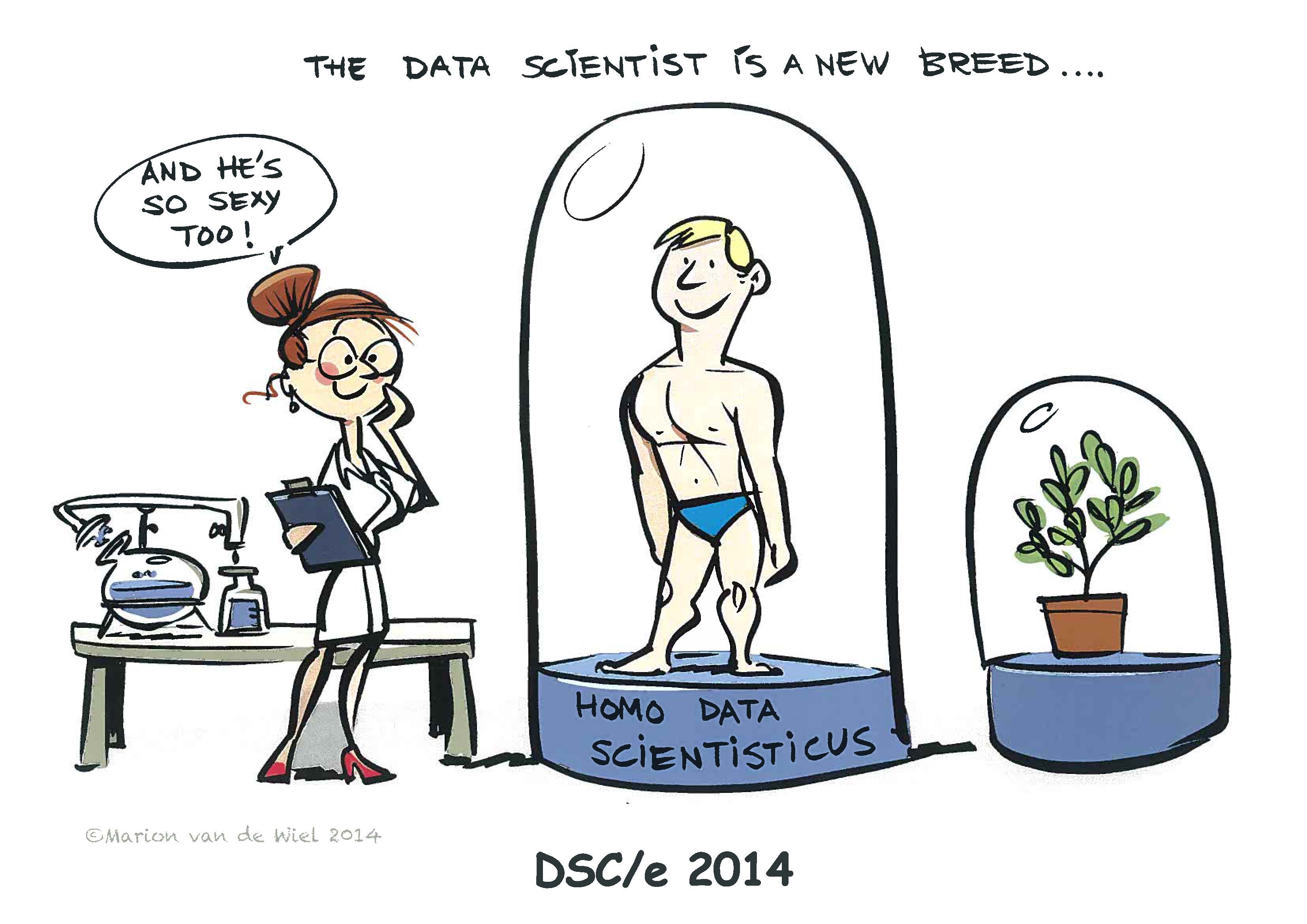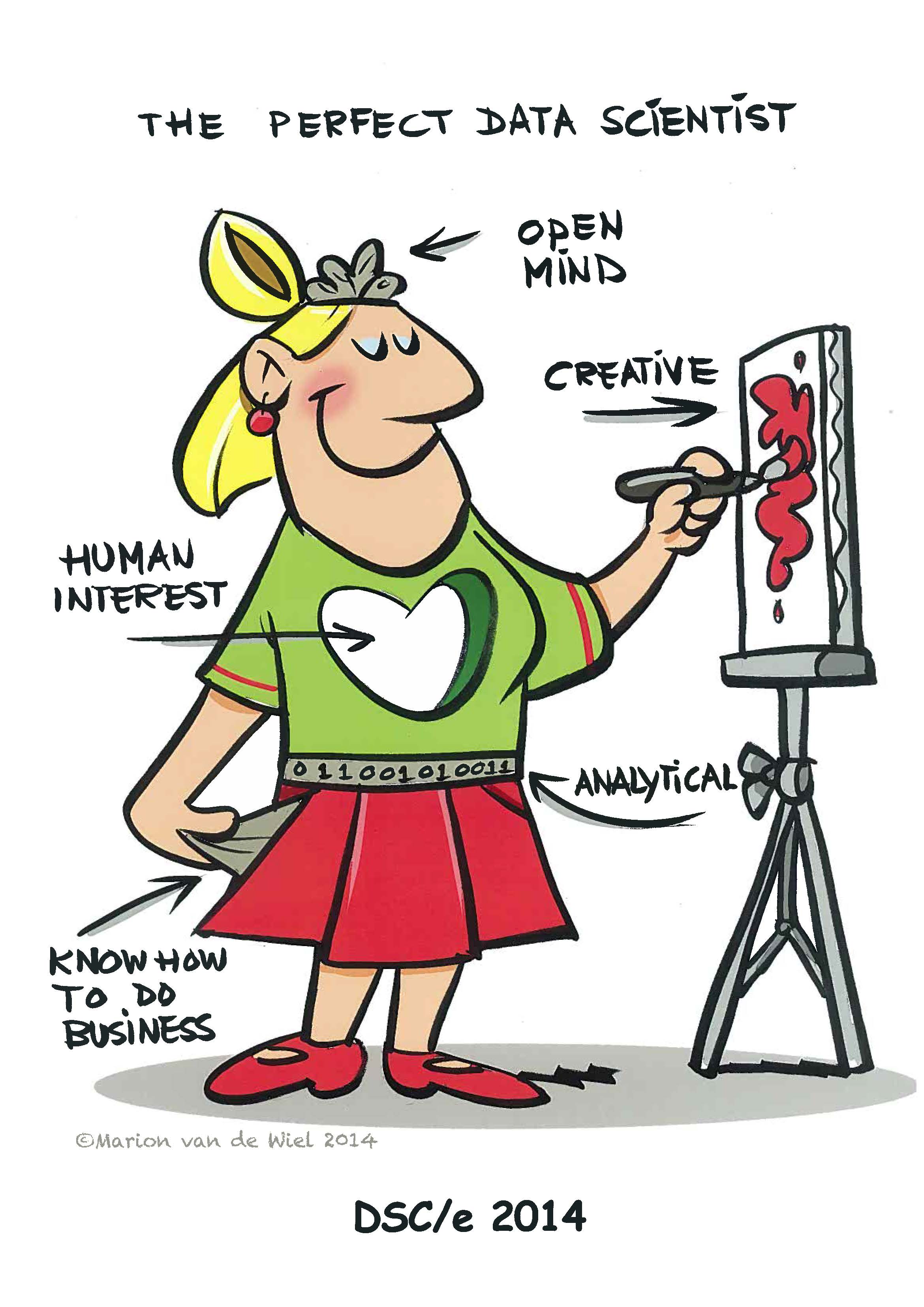Data Science Is here To Stay!
Data Science is a new engineering discipline and the main driver for innovation in the years to come. Just like computer science emerged as a new discipline from mathematics when computers became abundantly available, we now see the birth of data science as a new discipline driven by the torrents of data available today. The data scientist will be the engineer of the future. This explains why many people want to study data science topics.
Data is collected about anything, at any time, and at any place. Gartner uses the phrase The Nexus of Forces to refer to the convergence and mutual reinforcement of four interdependent trends: social, mobile, cloud, and informa- tion. The term Big Data is often used to refer to the incredible growth of data in recent years. However, the ultimate goal is not to collect more data, but to turn data into real value. This means that data should be used to improve existing products, processes and services, or enable new ones. Event data are the most important source of information. Events may take place inside a machine (e.g., an X-ray machine or baggage handling system), inside an enterprise information system (e.g., a order placed by a customer), inside a hospital (e.g., the analysis of a blood sample), inside a social network (e.g., exchanging e-mails or twitter messages), inside a transportation system (e.g., checking in, buying a ticket, or passing through a toll booth), etc. Events may be life events, machine events, or both. We use the term the Internet of Events (IoE) to refer to all event data available.
Data science aims to answer questions in the following four categories:
- Reporting: What happened?
- Diagnosis: Why did it happen?
- Prediction: What will happen?
- Recommendation: What is the best that can happen?
To adequately answer such questions there is not just a need for raw data and computing power. Expertise in data/process mining, probability/statistics/stochastics, and visualization are vital.
Data Science and Artificial Intelligence at RWTH
The RWTH Center for Artificial Intelligence joins the different reserach groups working on AI Methods (machine learning, neural networks, process mining, etc.), AI Enabling Technologies (databases, data management, distributed systems, etc.), AI Applications (robotics, production, mobility, etc.), and Ethical, Legal, Economic, and Societal Aspects (privicy, business models, etc.). The PADS groups is responsible for the Introduction to Data Science course which is mandatory for the Data Science master program.
Data Science Center Eindhoven (DSC/e)
The Data Science Center Eindhoven (DSC/e) was an initiative of the Eindhoven University of Technology to set up a world leading research program in data science. It was the first center of its kind in The Netherlands. The center opened in 2013 with Wil van der Aalst scientific director and co-founder. The center grew to almost 40 reserach groups and hosted over 400 researchers working on topics such as Process Mining, Artifical Intelligence, Machine Learning, Responsible Data Science, Customer Journey, Data Management, Smart Manufacturing, Health Analytics, and Quantified Self. DSC/e led the development of several bachelor and master programs in data science (the first in The Netherlands). DSC/e helped to put TU/e in a leading position in data science research and fueled large scale collaboration with Philips Healthcare, ASML, Vanderlande Industries, and many other high-tech companies in the Brainport region. DSC/e also helped to establish the Jheronimus Academy of Data Science (JADS), a unique cooperation between the Province of North Brabant, the Municipality of ‘s-Hertogenbosch, Tilburg University, and Eindhoven University of Technology.
To illustrate the importance of data science, see the cartoons below made by Marion van de Wiel. These were created during one of the DSC/e workshops with industry in 2014.


